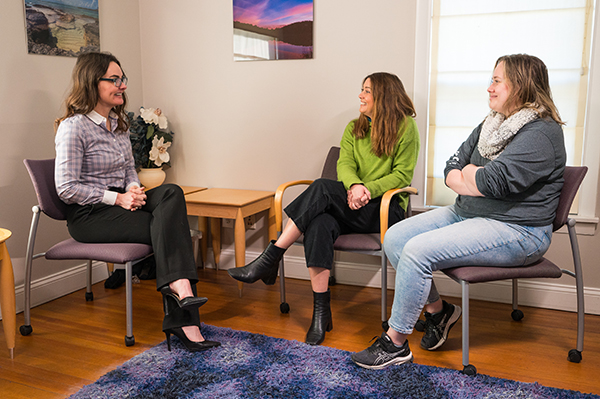
Fairfield University’s Marriage and Family Therapy (MFT) program, housed in the School of Education and Human Development, has been ranked No. 1 in Connecticut by MarriageFamilyTherapist.org, a comprehensive online resource for those interested in the field of marriage and family therapy.
A key component of Fairfield’s MFT program is its on-campus clinic, the Kathryn P. Koslow Center for Marriage and Family Therapy, which provides therapeutic services and valuable learning opportunities for students while serving the greater Fairfield community. The Koslow Center provides therapy for individuals, couples, and families, offered both in person and via telehealth—on a sliding scale basis. All services are conducted by graduate students under the supervision of licensed professionals (MFT faculty) and clinical supervisors within the program.
Beyond clinical work, students engage in faculty-mentored research, rigorous coursework, and clinical training.
The demand for well-trained mental health professionals continues to rise. According to the U.S. Bureau of Labor Statistics, “employment of marriage and family therapists is projected to grow 16 percent from 2023 to 2033, much faster than the average for all occupations.” Fairfield University’s MFT program is designed to meet this growing need by providing students with a strong academic foundation, practical skills, and hands-on clinical experiences essential for impactful careers in the mental health field.
MarriageFamilyTherapist.org is a web-based resource developed by licensed therapists, academic researchers, and writers to support aspiring therapists at every stage. The site provides tools for exploring degree programs and preparing for licensure and career advancement.
To ensure that rankings are based on accurate, verifiable information, MarriageFamilyTherapist.org gathers data from reputable sources, including the Integrated Postsecondary Education Data System (IPEDS), the National Center for Education Statistics (NCES), the U.S. Department of Education’s Office of Postsecondary Education (OPE), and the Council for Community and Economic Research.